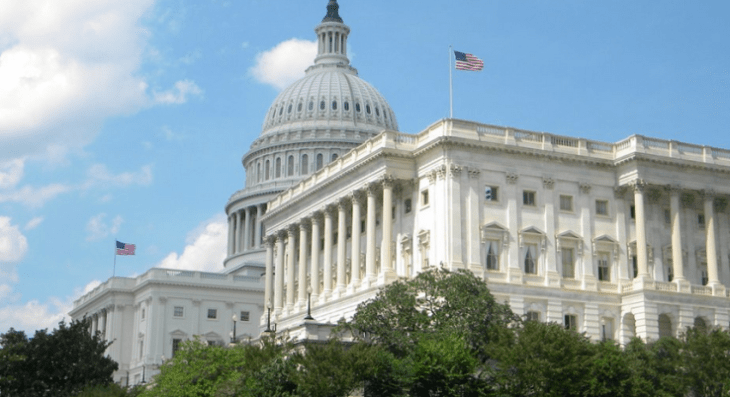The long-burning debate concerning encryption, its impact on both consumer privacy and the government’s ability to protect its citizens is back with a vengeance.
The dialogue appeared to be dwindling after the White House said it would not require companies to breach the security of their products to provide the government with information. The Paris terror attack has thrust encryption back into the national dialogue. Following a New York Times report that the ISIS terrorists used an unspecified form of encryption, the calls to curtail the cryptography practice are back and louder than ever.
The debate follows two key lines at the moment. The first is that the government must have the capability to either get around or get through encryption when national security is at risk. Some have gone so far to say that the attacks in Paris happened because of the increase in encryption practices. The second is that encryption must remain secure.
Though providing a backdoor to law enforcement may seem at first glance like a compromise that allows us to keep our data secure and law enforcement to obtain the information they need, it’s as effective as having no encryption at all. Providing a key, a backdoor, a front door or whatever the kids are calling it these days to the government, you also provide one to criminals and hackers.
Given the current political climate, national security landscape, geopolitical unrest, nuance can be in short supply. Encryption inevitably will now be a major 2016 election issue, so it will likely only get worse.
The hawkish side of the national security and privacy debate — your NSA types, and the people who fund and protect them — have done away with nuance altogether.
What follows are a selection of recent quotes from American political leaders that oppose strong encryption. We hope that they speak for themselves, but have provided modest context and commentary when we felt it appropriate.
First up, United States Senator Dianne Feinstein, who answered a question concerning encrypted products on MSNBC, said the following:
I think that Silicon Valley has to take a look at their products. Because if you create a product that allows evil monsters to communicate in this way, to behead children, to strike innocents, whether it’s at a game in a stadium, in a small restaurant in Paris, take down an airliner. That’s a big problem.
So we need high tech’s help in securing an Internet that even with a court order, you can’t get to what they are saying. That is a big problem.
Equating secure products with the protection of monsters is a bit tough, but it’s the final paragraph that confuses. The senator first claims that we need help to “secure” an Internet. Fair enough. But that is an argument in favor of encryption, and not against.
Here’s CIA director John Brennan:
“And in the past several years because of a number of unauthorized disclosures and a lot of handwringing over the government’s role in the effort to try to uncover these terrorists, there have been some policy and legal and other actions that are taken that make our ability collectively internationally to find these terrorists much more challenging. And I do hope that this is going to be a wake-up call, particularly in areas of Europe where I think there has been a misrepresentation of what the intelligence security services are doing by some quarters that are designed to undercut those capabilities.”
The Snowden disclosures have led to reforms of the American surveillance system that will take effect next month. But perhaps more importantly, they have taught everyone — most importantly tech companies — to take security and privacy more seriously. But instead Brennan is blaming these revelations for the attacks in Paris.
His dismissal of national outrage and reform as “handwringing” is also a bit much.
Up next is Gov. Jeb! Bush, who is currently running for president:
“If you create encryption, it makes it harder for the American government to do its job — while protecting civil liberties — to make sure that evildoers aren’t in our midst. We need to find a new arrangement with Silicon Valley in this regard because I think this is a very dangerous kind of situation.”
What kind of arrangement does Bush want? One of the greatest problems with the ongoing encryption debate is that a lot of politicians are opposed to encryption, but they want Silicon Valley to magically pull a solution out of the air when the industry has been clear that it can’t.
The size of miracle required for Silicon Valley to beat math, it seems, would be of similar scale to the miracle needed to resurrect the candidacy of Gov. Jeb! Bush.
And here’s Carly Fiorina, former CEO of HP, and another candidate for president:
“I certainly support that we need to tear down cyber walls, not on a mass basis, but on a targeted basis. I do not believe that we need to wholesale destroy every American citizen’s privacy in order to go after those that we know are suspect or are already a problem. But yes, there is more collaboration required.”
You might have expected a former technology executive to have a better grip on the issues at hand. As it stands, her comment concerning cyber walls is interesting, though she doesn’t come down completely against encryption, per se. Perhaps she can use her prior Silicon Valley connections to lead the collaboration required.
—
Wrapping all that together, there isn’t much going on. A fusion, if you will, of banality, and confusion. It’s going to be a long 2016.
